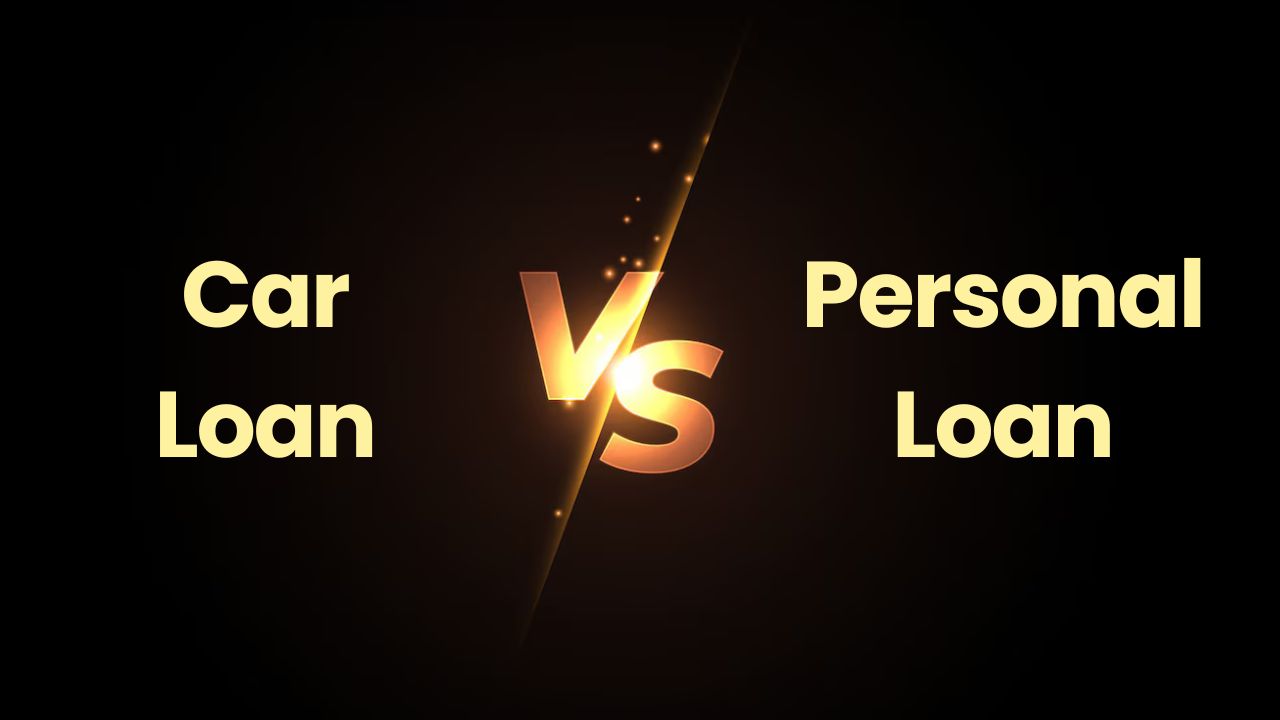Buying a car is a significant financial decision that most people can't afford to make with cash alone. When it comes to financing your vehicle, you're typically faced with two main options: a car loan or a personal loan. While both can help you get behind the wheel, they work quite differently and come with distinct advantages and disadvantages. Understanding these differences is crucial for making an informed decision that aligns with your financial situation and goals.
In India, vehicle financing has become increasingly popular, with both car loans and personal loans offering different approaches to borrowing money. A car loan is specifically designed for vehicle purchases and is secured against the car itself, while a personal loan is an unsecured loan that can be used for any purpose, including buying a car. The choice between these two financing options can significantly impact your monthly payments, total interest costs, and overall financial flexibility.
Understanding Car Loans: Vehicle-Specific Financing
A car loan is a secured loan specifically designed for purchasing vehicles. The car itself serves as collateral, which means if you default on payments, the lender can repossess your vehicle. This security allows lenders to offer more favorable terms compared to unsecured loans.
How Car Loans Work
When you take a car loan, the lender pays the car dealer or seller directly, and you repay the loan amount plus interest over a predetermined period. The loan amount typically covers 80-90% of the car's on-road price, requiring you to make a down payment of 10-20%.
Car loans usually have fixed interest rates and monthly installments (EMIs) that remain constant throughout the loan tenure. The interest is calculated on the reducing balance, meaning you pay interest only on the outstanding loan amount.
Key Features of Car Loans
- Lower Interest Rates: Typically 7-12% per annum due to secured nature
- Longer Tenure: Up to 7-8 years for new cars, 3-5 years for used cars
- Higher Loan Amounts: Can finance up to 90% of the car's value
- Vehicle as Collateral: Car serves as security for the loan
- Processing Fees: Usually 0.5-2% of the loan amount
Understanding Personal Loans: Flexible Financing Option
A personal loan is an unsecured loan that can be used for any purpose, including purchasing a car. Since there's no collateral involved, lenders rely heavily on your creditworthiness and income to determine eligibility and interest rates.
How Personal Loans Work
Personal loans provide you with a lump sum amount that you can use as you wish. The lender doesn't require any specific purpose or collateral, making it a flexible financing option. You repay the loan through fixed monthly installments over the agreed tenure.
Unlike car loans, personal loans are disbursed directly to your bank account, giving you the freedom to negotiate with car dealers for better prices or even buy from private sellers.
Key Features of Personal Loans
- Higher Interest Rates: Typically 10-24% per annum due to unsecured nature
- Shorter Tenure: Usually 1-5 years maximum
- Lower Loan Amounts: Generally limited to ₹25-50 lakhs
- No Collateral Required: Based purely on creditworthiness
- Flexible Usage: Can be used for any purpose
Car Loan vs Personal Loan: Detailed Comparison
To help you make an informed decision, let's compare these two financing options across various parameters:
| Parameter | Car Loan | Personal Loan |
|---|---|---|
| Interest Rate | 7-12% per annum | 10-24% per annum |
| Loan Tenure | Up to 7-8 years | 1-5 years |
| Loan Amount | Up to 90% of car value | ₹25,000 - ₹50 lakhs |
| Down Payment | 10-20% required | No down payment |
| Processing Time | 2-7 days | 1-3 days |
| Documentation | Extensive (car details, insurance) | Minimal (income proof, KYC) |
| Prepayment Charges | 2-4% of outstanding amount | 2-5% of outstanding amount |
Real-Life Example: Comparing Costs
Let's understand the cost difference with a practical example. Suppose you want to buy a car worth ₹10 lakhs:
Car Loan Scenario
- Car Price: ₹10,00,000
- Down Payment (20%): ₹2,00,000
- Loan Amount: ₹8,00,000
- Interest Rate: 9% per annum
- Tenure: 5 years (60 months)
- Monthly EMI: ₹16,607
- Total Interest Paid: ₹1,96,420
- Total Amount Paid: ₹9,96,420
You can use our Car Loan EMI Calculator to calculate your exact EMI and interest costs.
Personal Loan Scenario
- Loan Amount: ₹8,00,000
- Interest Rate: 15% per annum
- Tenure: 5 years (60 months)
- Monthly EMI: ₹19,033
- Total Interest Paid: ₹3,41,980
- Total Amount Paid: ₹11,41,980
Use our EMI Calculator to compare different loan scenarios and find the best option for your budget.
When to Choose a Car Loan
Car loans are ideal in the following situations:
- You're buying a new or relatively new car: Car loans offer better terms for newer vehicles
- You want lower interest rates: Secured nature results in more favorable rates
- You need a longer repayment period: Up to 7-8 years for new cars
- You have a good credit score: Better rates and higher loan amounts
- You can afford the down payment: 10-20% upfront payment required
When to Choose a Personal Loan
Personal loans make sense when:
- You're buying a used car: Car loans for used cars have higher rates and shorter tenures
- You need quick disbursal: Faster processing and minimal documentation
- You want flexibility: Can negotiate better car prices or buy from private sellers
- You don't have a down payment: No upfront payment required
- You have excellent credit history: Can secure competitive personal loan rates
Factors to Consider Before Choosing
1. Your Credit Score
Your credit score significantly impacts the interest rate you'll receive. A score above 750 typically qualifies you for the best rates on both car loans and personal loans. Check your credit score before applying to understand your borrowing power.
2. Down Payment Capacity
If you can afford a 20% down payment, a car loan becomes more attractive due to lower interest rates. However, if you need 100% financing, a personal loan might be your only option.
3. Car Age and Value
Newer cars (0-3 years) qualify for better car loan terms. Older cars or those with high depreciation might be better financed through personal loans.
4. Monthly Budget
Calculate your monthly EMI using our EMI Calculator and ensure it doesn't exceed 40-50% of your monthly income. This helps maintain financial stability.
5. Future Plans
Consider how long you plan to keep the car. If you might sell it within 2-3 years, a personal loan with shorter tenure might be better.
Application Process and Documentation
Car Loan Application
The car loan application process involves:
- Selecting your preferred car and dealer
- Submitting loan application with required documents
- Vehicle inspection and valuation
- Loan approval and disbursal to dealer
- Car registration and insurance setup
Personal Loan Application
Personal loan application is simpler:
- Online or offline application submission
- Document verification
- Credit assessment
- Loan approval and disbursal to your account
- Use funds as needed
Tips for Getting the Best Deal
- Compare multiple lenders: Don't settle for the first offer you receive
- Negotiate interest rates: Use competing offers to negotiate better terms
- Check for hidden charges: Processing fees, prepayment charges, and insurance costs
- Consider prepayment options: Choose loans with lower prepayment penalties
- Maintain good credit score: Regular payments and low credit utilization
Common Mistakes to Avoid
- Not comparing total costs: Look beyond just the interest rate
- Ignoring processing fees: These can add significantly to your total cost
- Choosing longer tenure without need: Longer loans mean more interest paid
- Not reading terms carefully: Understand prepayment charges and other conditions
- Borrowing more than needed: Stick to your budget and requirements
Conclusion: Making the Right Choice
The choice between a car loan and personal loan depends on your specific circumstances, financial situation, and preferences. Car loans offer lower interest rates and longer tenures but require down payments and are limited to vehicle purchases. Personal loans provide flexibility and quick disbursal but come with higher interest rates.
For most new car purchases with good credit scores, car loans are the better option due to lower costs. However, for used cars, quick purchases, or when you need flexibility, personal loans can be more suitable.
Before making your decision, use our Car Loan EMI Calculator and Personal Loan EMI Calculator to compare the total costs and monthly payments. This will help you make an informed decision that aligns with your financial goals and budget.
Remember, the best financing option is one that fits your budget, offers competitive rates, and provides the flexibility you need. Take your time to research, compare options, and choose wisely.




